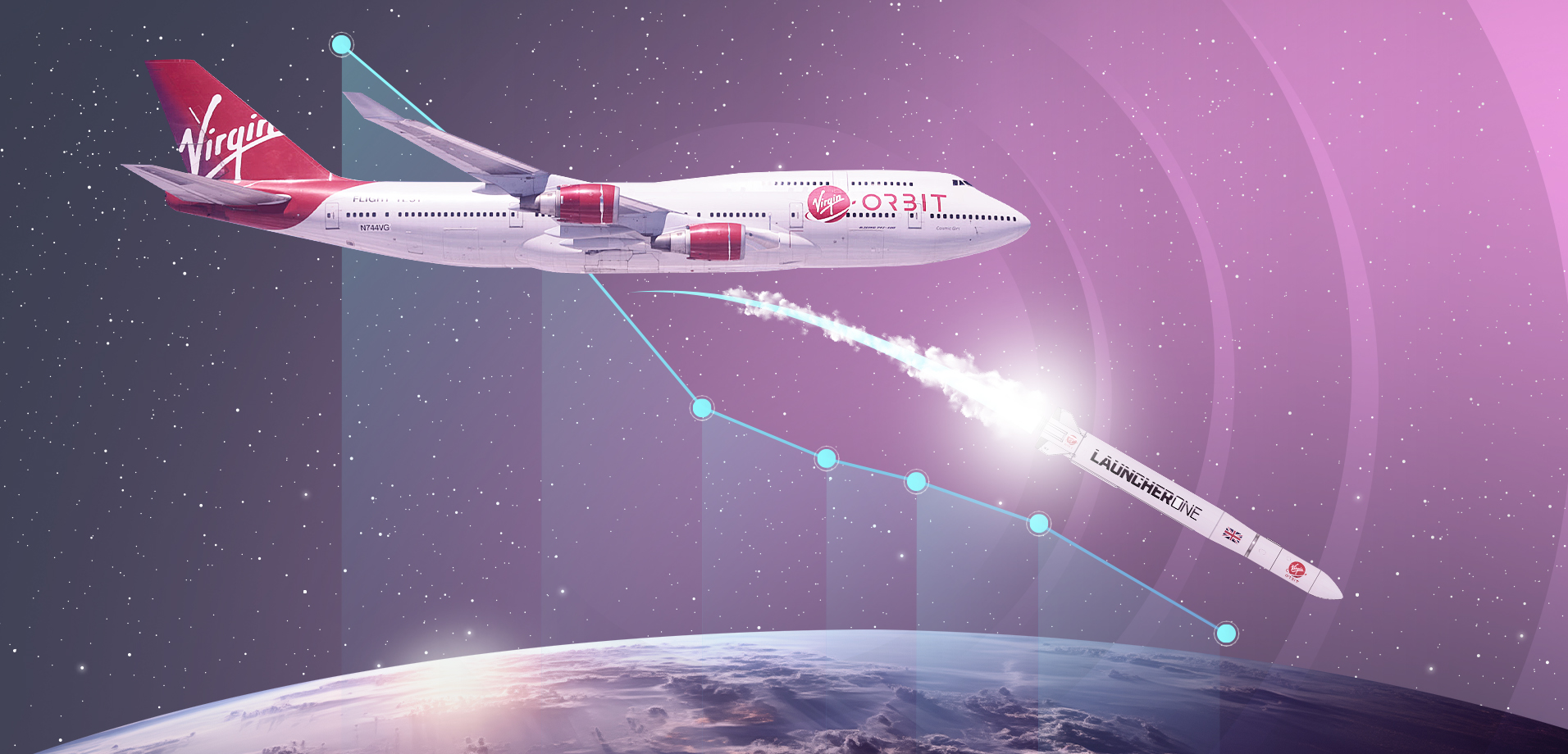Space Companies Lost: Failed Space Companies in 2023
22nd Jan 2024
The term “successful failure” was coined after the famous Apollo 13 mission, and is a phrase that is used regularly in the world of space exploration and the space industry. Being able to fail in a way that makes progress is often part of the remit. For missions trying to push the envelope, it’s an all-too common outcome. For companies, it’s not unexpected. In fact, with certain bankruptcy laws, some companies can even come back from failure and seeming financial abyss. OneWeb is an example of a company that went bankrupt back in 2020 but is now back and functioning successfully. Not all failed space companies have been so fortunate, though.
So what space companies went bankrupt in 2023? Lt’s take a look at a few of these failed space companies..
Virgin Orbit
Virgin Orbit is the most high-profile of the failed space companies of 2023, and made headlines with the major failure of the Start Me Up mission in January. Founded and funded by British billionaire Richard Branson, the company filed for Chapter 11 bankruptcy in the US back in April, and has already auctioned off its assets. However, the company had reached a value of $3.5 billion at its peak.
Virgin Orbit’s bankruptcy statement spoke of the “groundbreaking technologies” that the company introduced. It used a Boeing 747 to carry the LauncherOne rocket before its attempted horizontal launch.
From the failed launch, Virgin Orbit was sent into a downward spiral. It paused operations in March, trying to secure funding and prevent the finances haemorrhaging from the business. It then cut 85% of staff in March, but eventually was forced to file for bankruptcy.
The failed company explained that: “Throughout its history, Virgin Orbit has been at the forefront of innovation and has made substantial contributions to the field of commercial rocket launch.” A dislodged fuel filter part was given as the reason for the launch failure, and nine satellites were lost in the launch.
Virgin Orbit was an offshoot of Branson’s much-criticised Virgin Galactic, which managed sub-orbital flight in 2021 as the British entrepreneur beat billionaire rival Jeff Bezos into space. Virgin Galactic is still in operation and offering one of the first space tourism packages, but stocks dropped in 2023, largely due to the failure of Virgin Orbit and a loss of faith from investors.
Pioneer Aerospace Corporation (Bought by SpaceX)
Pioneer Aerospace Corporation has been a crucial part of the space industry supply chain in the US for decades. In a way, it’s odd that it is one of 2023’s failed space companies.
Based in Connecticut, the company develops parachutes for space use as well as other applications, including the drogue chutes used by SpaceX Dragon capsules and the Nasa Mars and asteroid missions to return samples.
Operating since the 1930s, in 1962, Pioneer bought the rights to the newly invented “Parasail” and were able to incorporate this into their technology, making chutes for NASA spaceflight programs such as Gemini, the Space Shuttle, Mars Pathfinder missions, and many more. In 1999, they made the world’s largest parafoil for the X-38 Crew Return Vehicle.
On November 1, 2023, Pioneer Aerospace Corporation filed for Chapter 11 bankruptcy, but a week later, in a strategic move to preserve the supply chain, SpaceX stepped in. The company filed a purchase agreement for SpaceX to buy all of its assets and IP, including the IP for the drogue chutes used by SpaceX. They will continue to manufacture these under contract after the acquisition was approved by the courts in November 2023.
Famously, both SpaceX and Boeing have come across numerous challenges in developing parachutes for their commercial craft, so it makes sense for one of the industry giants to help to keep Pioneer Aerospace Corporation operational.
Kleos Space
Kleos Space was a company in its infancy when it was forced to file for bankruptcy having run out of funds in 2023. The startup operated signals-intelligence satellites, and in spite of raising millions in funding, the financier of the company said it would have to file for bankruptcy.
Kleos Space had issues with some satellites and had to write them off, swallowing the cost in the process. Though they were based in Luxembourg, Kleos Space was owned by Pure Asset Management, an Australian investment fund.
Kleos Space had launched 12 satellites into space with the goal of detecting radio signals and pinpointing locations. The company had contracts to provide monitoring data for both government and commercial purposes, as well as working with the National Reconnaissance Office to provide RF data.
In a statement, they explained that: “the company’s board has had no alternative but to acknowledge that the Company is unable to meet its financial commitments as they fall due, and that there is no prospect of viable alternative financial accommodation.”
“Accordingly, it will petition the relevant commercial district court in Luxembourg for a bankruptcy adjudication,”
In September, the company was said to be seeking buyers for its assets, but there has been no public update. Kleos Space’s spokesperson Lou Weis explained that the company had things to be proud of. “We developed and delivered new, highly disruptive technology that was helping to solve security challenges and also built a global customer base including numerous government agencies.”
In the world of private space travel companies, it is inevitable that some will end up out of runway.
SpaceRyde
SpaceRyde, the Canadian startup that had only been operating for five years, filed for bankruptcy in 2023. The company had been developing an innovative rocket that used a balloon as the first stage, and raised around $10m in different rounds of funding.
In order to undertake more commercial launches in 2024, the company was seeking more funding that didn’t arrive, and noise complaints also put an end to some of the testing stages of their development.
SpaceRyde’s premise was to deliver payloads under 25 kilograms into orbit for around $250,000, a relatively affordable option for cubesats. The company also said that their three-stage Ryder rocket would be able to launch 100-150 kg satellites with sun-orbit and low-earth orbits an option.
Their business plan also outlined a demo mission around the Moon and back towards the end of 2024, something that will now sadly not materialise.
For SpaceRyde CEO and co-founder Sohrab Haghighat explained some of the problems and said that the issue “was not lack of interest,” and went on to mysteriously state that there was an issue at the planning stage, calling it: “one of the biggest issues — perhaps the biggest issue we had.” He didn’t elaborate.
However, the municipality of Ontario where the company was based, Trent Hills, ordered them to stop engine tests from their lot due to the fact that it was causing noise pollution.
A petition circulated in 2022 and received over 800 signatures from locals claiming it could be heard “for many miles”.
The company filed for bankruptcy under section 49 of the Bankruptcy and Insolvency Act in Canada.
Conclusion
All of the “fallen” have contributed in some way to the current state of the industry. The space industry relies hugely on capital being raised from rounds of seed funding, and it doesn’t always work out for companies as they have fewer sources of revenue in the short term. With economic challenges predicted for 2024, there’s every chance of more companies struggling in the year ahead.






Thank you for your comment! It will be visible on the site after moderation.